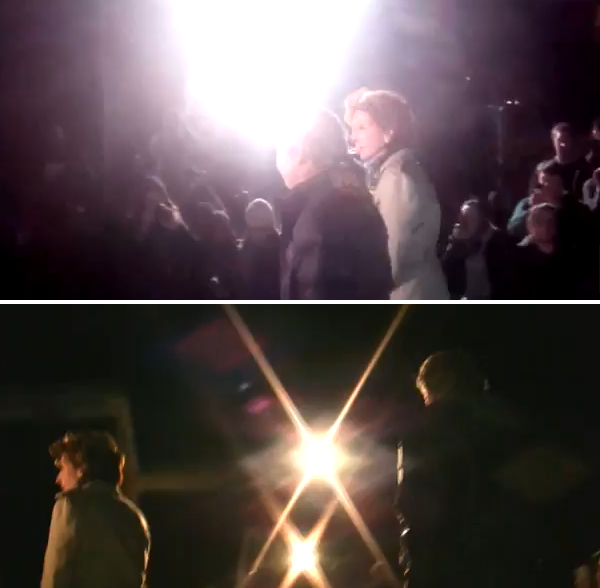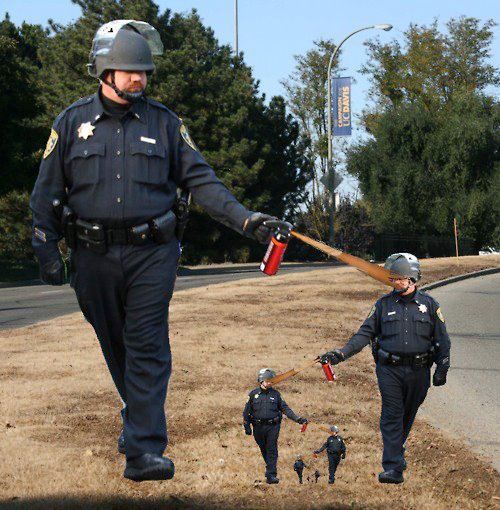{LMC}: The Multiplying Self
Sometimes we want to dance, even those of us who say we don’t like to. Colin Winnette’s narrator meditates upon this desire, but only for a moment. The narrator exists in fragments, and the part of him that wanted to dance, named “An Evasive Aspect of My Personality,” is denied the pleasure of turning and moving to music, denied this approximate transcendence. In certain moments, different aspects of the narrator take precedence. We are a sum of our parts, but it doesn’t mean the parts have to work together.
Personalities are shaped in fiction by the discourse. We say, “This narrator is unreliable.” “This narrator is sympathetic.” “This narrator shows what it’s like to live in a war torn country and how to go beyond nationalism.” However, even these moves are not transparent inside of fiction. Characters are led by their authors to decisions that lead us to judge them. Dialogue helps characters reveal themselves to us, we get exposition, or free indirect discourse moves a reader along inside a character’s head, trailing his or her thoughts.
Teenwolf as Kafkian Experience

Teenwolf (1985) begins with the muffled sound of a basketball in place of, or competing with, a heartbeat — that of Scott Howard (Michael J. Fox), a lanky self-conscious high school student trying his very best at basketball. The conquest of men, drained of blood and necessity, finds its charade in contemporary American sports. The opening scene is shot from below, with Scott’s head prophetically eclipsing the round lunar overhead stadium light. Despite the brief elevated pulse, we see Scott under his pallor, unwittingly negotiating the complexities and politics of the external world, tightly mapped out on a basketball court. Comparisons to Goethe’s Young Werther, Salinger’s Holden Caulfield, and Dostoyevski’s narrator in Notes from the Underground are likely, though we all know the imminent metamorphosis into wolf (i.e. the postmodern “other”) is essentially Kafkian; thus, Teenwolf preserves the legacy of Kafka’s The Metamorphosis as the grotesque as metaphor for perceived self-deformity and body dysmorphic disorder. One may note, or at least this contributor, the inverse-POV angle of Scott looking at us from above, intent on our gaze, sweaty, as if we, or the cameraman, were fellating the young actor; though the space between these two orientations is collapsed by the camera’s super-consciousness, its pictorial convex sweep bestowed with omniscience, as if we, void of God, were desperate to find its robotic mascot. Hey boy, big boy, we think under muffled vowels at the film’s opening shot. It seems the director, in an act of cinemagraphic authority, has been careful to put us into place.
Fictionitis |fick shun eye tus|
noun
a disease of the frontal lobe that obliterates the impulse to write fiction almost before (in the time-space continuum) the impulse is acted upon; the foiling of grand plans and even grander fantasies as a result of said disease: I contracted fictionitis minutes after conceiving of a fiction-writing-for-poets series on HTMLGiant; I will wash my mouth out with soap, but it won’t cure the disease.
LIES/ISLE PRESENTS: Unrepairable by Russ Woods
Since it’s the terrible day of capital-death known as BLACK FRIDAY, I’ve decided that a more positive gesture, to assuage all the guilt of those who are pimp their souls to save a buck (we’ve all been there in some regard), is needed. Thus, I’d like to publish a brilliant work of literature that specifically makes use of the medium it’s being published on; namely THE INTERNET. Russ’s work takes a note from old text-based RPGs (MUDs to be more specific) on telnet, an entirely antiquated form that, as Russ’s work proves, is ripe for exploration.
Russ Woods lives in Chicago and edits Red Lightbulbs with his wife Meghan Lamb.
Click “more” to read Russ Woods’s brilliant Unrepairable.
READ MORE >
After traveling, spending time with your family, overeating and drinking, how do you deal with all that post-Thanksgiving guilt?
if there’s anything you need to know about “contemporary indie lit” it’s that all you need to do to get a book published is write one – Impossible Mike
{LMC}: Hug Beecher’s One Before Bed and It Hugs Back

Beecher’s One has an effect on me, and not just because of the wonderful stories. More than any other journal I have read, holding it evoked an emotion, much like the words did. When nobody was looking, I may have rubbed the journal all over my face, took deep breaths over its pages and whispered secrets into its binding, which I have learned is called a “naked” binding. How sexy.
Daniel Rolf is responsible for my affection for the design. He said the original concept for the binding was to make the first issue a “simple container for the text, but also something interesting to hold and look at.” Well, he surpassed that goal by quite a bit.
Angles

On November 22, 2011, at approximately 2:05 PST, at the time of this post’s inception, a version of UC Davis Chancellor Linda Katehi walking to her car (with the parenthetical “higher quality,” as proposed by the uploader) had been viewed 873,526 times three days after it had been posted. Its like-to-dislike ratio was 4485:91 (or, ~49:1). It captures the 2:39 minutes endured by Katehi and relished by us all for her to walk to her car through a considerate berth of protestors, silenced in their greatest form of protest. This is when I began to take them seriously. It is one of the most beautiful things I’ve seen, in its humanity, restraint, and ultimate respect for another human being. Of course, we understand that Katehi is being publicly shamed, and judged, and the silence is indignantly rhetorical. A less popular version, shot from another angle, its camera operator incessantly “a little behind” and somewhat crouched, had, at the same point in time of this composition, 98,064 views, with a ~55:1 like-to-dislike ratio. Although it is parenthetically and ostensibly “HD, best quality,” it will forever remain a subordinate version of the greater version, the latter’s historicity democratically bestowed by the aesthetic inclinations of the people: they preferred the perpendicular “real time” camera angle, the purplish fragmented light and sporadic halos caused by an array of camera flashes perhaps heightening this eerie inverse Coronation of the Queen. Media accelerates history, and it seems Katehi will go down as the Chancellor of a large liberal California University who was to be held responsible for the violent assault by her police on her civilly disobeying class; and all the PR letters from the Chancellor’s office carefully crafted by administrators with Master’s degrees to both justify and mitigate, could not assuage the gross verity of pepper-spray being casually administered on a group of solemn protesters, whose imminent tears would be heard over cameras, some of them held by the protesters themselves, as they shook and writhed towards vertigo — all emitted through the quicksand of memory known as the internet, in truncated and fragmented versions of the same event, each vying for a piece of history. Sometimes it is difficult to ask a question when the reward of silence has just commenced. What would you have done? I don’t believe there are good people and bad people, and a line in between. That would assume I’m on the right side, and my world ends the moment I believe that. This post is an elegy for seeing things from another angle.
We Can’t Sit This One Out
At UC Davis, students protested nonviolently, the campus police responded, an officer casually sprayed a group of student sitting their arms interlocked, like plants, he became a meme and, along with the police chief, was placed on leave. Many people in many places expressed outrage, students participated in a powerful, silent protest. Assistant Professor Nathan Brown wrote an open letter to Katehi expressing his outrage. The UC Davis English department has changed their website so that the header issues a call for the chancellor, Linda Katehi, to resign and for the police force to be disbanded. On a national faculty mailing list I’m on, a member issued a call to action stating, “We cannot sit this one out.” During turbulent times, writers often ask themselves, how do we write about this? How do we respond? What is our responsibility to social change? How do we participate and avoid sitting this one out? Poet Robert Hass wrote a New York Times editorial that has been widely read and lauded but he also avoided sitting this one out because he and his wife were at the Berkeley protest. As writers, do you feel a need to respond to what happened at UC Davis, or UC Berkeley, or at any of the occupy movements? Do you feel the need to physically participate in these protests? Why and how?



